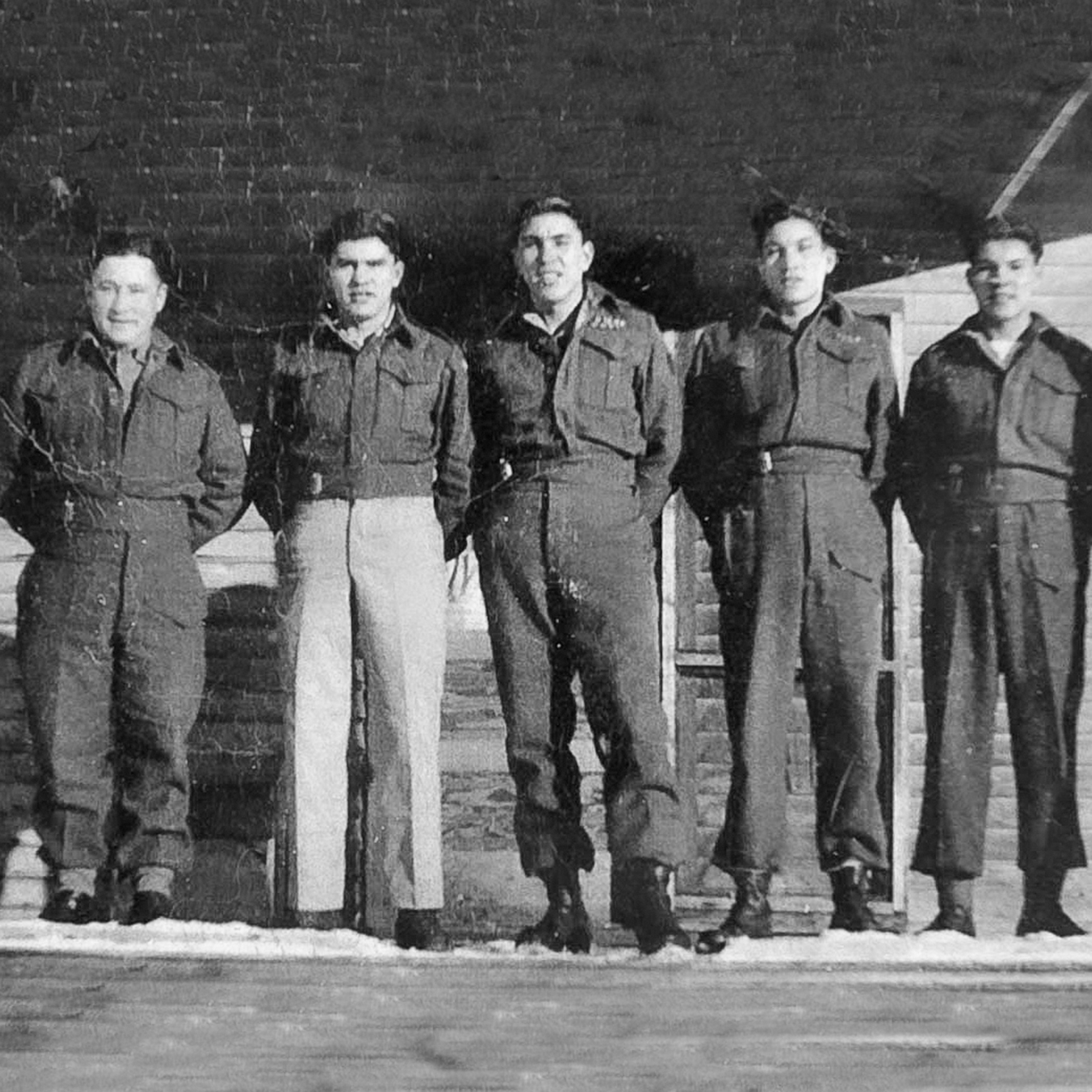
I had four brothers during the war and of course every young person I guess wants to join up, especially when their brothers are gone. That was the reason that I joined and of course when the war was over, there was not much point in staying in.
Two of my brothers were code-talkers during the war, the early part of the war. This American officer approached my brother Charles and of course asked a few questions as to how many Cree-speaking and English-speaking people that he knew that were veterans. And of course he named my brother Peter and there was a few others from his hometown that he knew. There was McDermott, Walter McDermott and Archie Plant.
The American army of course were the ones that were really interested in code-talkers and what they were used for in the early part of the war was they were placed—first they did a little bit of training, you know, how to interpret certain types of aircraft and stuff. And then they were placed at different airports and then they’d send a message in Cree—how many aircraft, what kinda aircraft was going to be going on this bombing run in England and of course the party on the other end would translate it back into English.
There were attached with the American Eighth Army and they were there for some period and I really don’t know the circumstances there. But I believe that the Americans, knowing that they had Indian veterans, their army people that they could get. And being Americans of course, why shouldn’t they use their own.
My grandmother, being a Plains Cree, and a widow of Poundmaker [a Plains Cree chief] and quite a family history there as far as like her uncle was Big Bear. He was quite active during the uprising [1885 North-West Rebellion] and of course growing up on the reserve and with the customs and all, she was a strong believer in the Indian ways and she taught my brothers an Indian song they were to sing if they were ever in combat and in a very dangerous position, to sing this war song that she taught them.
I never did know what that was but my brother very, very, very seldom sang it, only when he was talkin’ about it, you know, being in a tough situation and give him courage I guess, you know, to sing this song. But he said that in one instance, they were in a trench and they were being bombarded by the enemy and he said he happened to see his uncle. And my uncle had passed on already but he’d been in the First World War and he said he saw his uncle and his uncle was laughing and motioning him to come towards him.
He noticed all of a sudden this happened during while you’re being bombarded. And he said he walked towards his uncle and shortly, just after he got out of the way, a shell hit the place where he’d been and killed a couple of his buddies there. And he survived. And he said his uncle saved him from, you know, that’s the Indian way you might say.
-Frank Tomkins